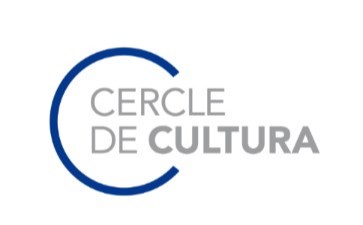Strategic value of culture in post-Covidien-19 economic transition and recovery
From the perspective of the management of European recovery funds, the Cercle de Cultura raises the need for these funds to reach the cultural sectors, to guarantee their capacity to create value and competitiveness, reconversion and diversification of traditional economic activities , and promoting innovation in other sectors. Public spending on culture in Spain is around 1.2%, generates an impact on GDP of more than 3.4%, and employs close to one million people directly. ” Impact of culture and cultural industries on European GDP is 4.7%, and employs more than 7.4 million people. But beyond the direct impact on GDP and employment, they are an engine of change and transition towards sustainable models of economic activities, in very diverse areas ranging from tourism, the agri-food sector, the world of services, design and activity. industrial, or digital development. The European Commission has considered culture and cultural industries as one of the 14 priority ecosystems for the post-Covidien-19 economic recovery. It is essential that the State and Catalan public administrations also prioritize the cultural sectors due to their strategic and transformation value.
With the pain of the loss of many lives and the impact of the health and social effects, the economic effects of the pandemic crisis have been felt in all sectors of activity. But without a doubt in the cultural sectors the effect has been catastrophic. Never in the history of the last two hundred years, nor in the context of the warlike conflicts of the First and Second World War, nor the Spanish Civil War, nor at any other time is there evidence of the total stoppage of cultural activity, such as the that occurred when the confinement measures were declared. The subsequent and current restrictions have lengthened the agony of many companies, institutions, entities, artists and creators and professionals of culture, making the effects of the Covidien-19 crisis devastating for the arts and culture.
Culture is a right and a key element for quality of life, but it is also an investment. Public spending generates a much higher impact on GDP, which is also transferred in terms of employment and three other positive effects that have to do with general economic activity. The construction of the tourist offer would not be possible without culture. On the other hand, culture is essential for attracting talent and is a key factor in the development of the creative economy and related cultural industries. And thirdly, culture has a very important capacity to generate innovation and competitiveness, improving the positioning of cities and territories.
Neither the tourism industry, nor the major events and economic manifestations such as the Mobile World Congress in Barcelona, or the concentration of companies with great capacity to create added value, would not have been possible without the ability to create attractiveness and competitiveness of culture . In this close and global context, we must reclaim the role of culture in the recovery process that we must urgently undertake in Catalonia within the framework of the European consensus.
We will consider that the cultural sector in all its breadth and complexity is a value to take into account due to its contribution to economic growth, the generation of an important sector that contributes to GDP and the maintenance of employment with a lot of tradition and resistance. Take advantage of this crisis for a transformation of cultural public policies to adapt to the new present realities and in anticipation of the future. Propose profound reforms in the cultural institutionality that we have endowed ourselves to place them in the scenarios of the needs of the recovery and resilience plans.
In this framework, we consider it essential to deepen culture as a fundamental right and maintain a tension to promote equal access to culture and compensate for structural imbalances to promote true cultural citizenship.
In accordance with these considerations, we consider it essential to incorporate culture into the Recovery Plan agenda as an active agent with many potentialities:
• So that culture and diversity of cultural expressions are a fundamental element of the project of the European Union. We must promote the cultural development of all EU Member States and ensure that none is left behind due to lack of resources and investment in culture.
• So that the relationship between creativity and social and economic innovation processes is an alliance demonstrated by its effectiveness.
• So that culture, cultural and creative industries contribute so added values to other sectors related to digital transformation that it has an unquestionable cultural dimension.
• Because interaction between innovation and digital transformation and culture, cultural and creative industries is strategic for strengthening the preservation, dissemination and global development of the European cultural offer.
• So that the challenges we have as a society cannot be faced without considering the importance of the cultural ecosystem as an essential factor to define new sustainable social and economic models.
• So that the economic development and quality of life of Catalonia is related to the attractiveness and cultural offer of cities and territories. Because culture is a factor of social cohesion and inclusion. Because culture has been key to the international positioning of Catalonia and to attracting talent.
• For Europe to be a shared idea, and culture is essential to build it together. For all these reasons, we ask the State and Catalan public administrations that culture and cultural industries form part of the real priorities with which the European recovery, resilience and transformation funds are managed.
Barcelona, January 13, 2021

